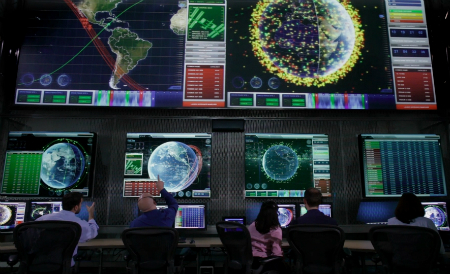 The Air Force on Monday selected Lockheed Martin to supply its new Space Fence, a ground-based radar system designed to detect and track objects on orbit, including small pieces of debris, as part of the broader US space-surveillance network. The company won a $914.7 million contract for the engineering, manufacturing, and development, and the production and deployment of the Space Fence, announced the Pentagon in its list of major contracts for June 2. The Air Force chose Lockheed Martin over another bid: Raytheon had also submitted a proposal. The service would like to commence operations with the Space Fence in 2018. The first Space Fence site is planned for Kwajalein Atoll in the Marshall Islands. Lockheed Martin has 52 months after contract award for the Space Fence to reach initial operational capability, according to the Pentagon’s contract description. The Space Fence will replace the Air Force Space Surveillance System, which had operated for more than five decades before the Air Force ceased activity with it in 2013. (See also On the Fence and Capability over Capacity in Space.)
The Air Force on Monday selected Lockheed Martin to supply its new Space Fence, a ground-based radar system designed to detect and track objects on orbit, including small pieces of debris, as part of the broader US space-surveillance network. The company won a $914.7 million contract for the engineering, manufacturing, and development, and the production and deployment of the Space Fence, announced the Pentagon in its list of major contracts for June 2. The Air Force chose Lockheed Martin over another bid: Raytheon had also submitted a proposal. The service would like to commence operations with the Space Fence in 2018. The first Space Fence site is planned for Kwajalein Atoll in the Marshall Islands. Lockheed Martin has 52 months after contract award for the Space Fence to reach initial operational capability, according to the Pentagon’s contract description. The Space Fence will replace the Air Force Space Surveillance System, which had operated for more than five decades before the Air Force ceased activity with it in 2013. (See also On the Fence and Capability over Capacity in Space.)
Space Force acquisition leaders were already looking to see if they could shift some of their biggest programs to use commercial services or technology, but one of President Donald Trump's executive orders, signed April 9, that could super-charge that effort.